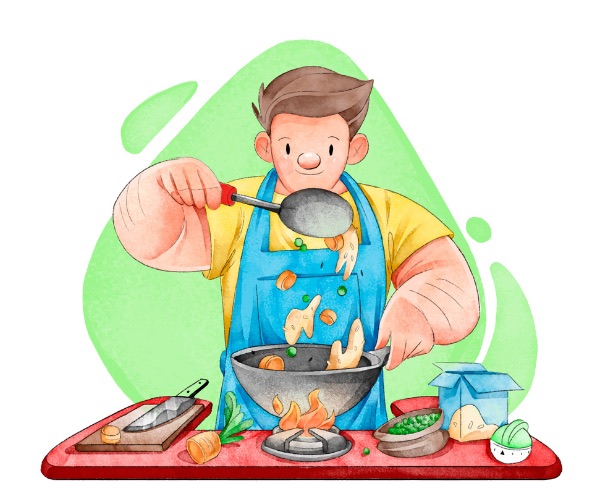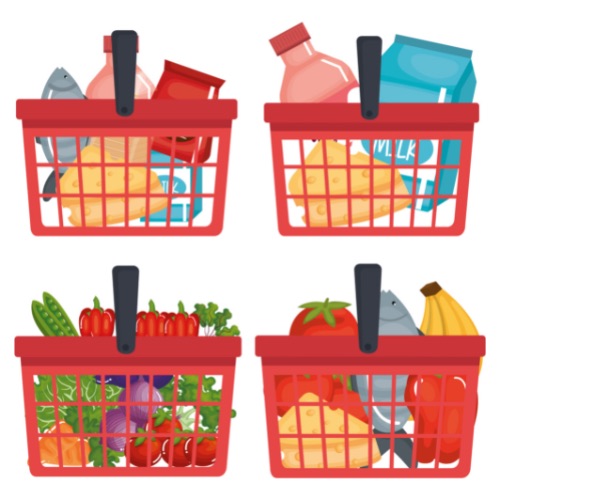
Aug 18 2022.
views 309While Colombo may boast a rich food lifestyle – plenty of supermarkets, eateries, and restaurants at every nook and corner – the current currency-driven economic crisis and the commodity shortages have caused a drastic change in this consumer lifestyle. With customers tightening their purse strings, restaurants are barely staying afloat and for the average buyer, a supermarket haul of essential goods is now a luxury expense. According to the UN, food inflation in Sri Lanka reached a record high of 80% in July 2022, and with the price of food skyrocketing every day, it’s of little to no surprise that almost every family and individual is now working on finding the best alternatives to manage their diet.

We spoke to a few people living in Colombo about how the current crisis has affected their lifestyle and diet and the alternatives they’ve found to make it work.
“As a baker, I’ve had to constantly find alternatives when the usual products were not available. When butter was unavailable, I shifted to Astra and because it didn’t alter the taste at all, I now continue with Astra and that’s saving a lot of money. At home, we now make a conscious decision to buy only the bare necessities and think twice about everything else. We’ve switched to buying certain goods like dry fish from the Jathika Pola than the supermarket for half the price. We also eat a lot of locally grown vegetables like keselmuwa, koss, jack fruit, pumpkin and I grow green leaves at home for daily consumption like thebu, cabbage leaves, passion fruit leaves, thampala, murunga, and spinach. We also don’t eat out as much and do a lot of the fancy cooking at home instead because it’s more value for money.” – Nanditha
“We used to go out or order in quite often but these days, it’s nonexistent because of the high prices and the fuel shortage. Most places don’t deliver anymore and even if they do, it’s very expensive. So now we mostly eat food prepared at home. We used to eat fish often but the price of seafood is so high these days we don’t buy and eat as much as we used to. Over the last few months, the price of goods went up every day and there were shortages of grocery items; what is available today is not there tomorrow and nobody knew when that item will be available again so we had no choice but to stock up on our daily goods like rice, butter, milk, and washing powder. I think it’s fair to say that all of our dietary habits have changed due to the crisis.” – Jayanga
“Our grocery list has completely changed amidst the crisis. We used to buy a lot of fish for our meals but it’s too expensive now. In fact, beef and pork are cheaper and it used to be the opposite a few months back. We’ve had to switch to more affordable meats, dry fish, and eggs in lieu of fish. Seafood has become such a luxury now! I also don’t even bother to look at the fancy vegetables like bell pepper, broccoli, and purple cabbage anymore and opt for the local vegetables instead because it's more affordable. For dry rations like our rice and dhal, we go to the economic centre because they offer better prices than supermarkets. Even to buy my kids a small treat like chocolate, you now have to spend over a thousand rupees. Our entire lifestyle and diet have changed due to the crisis. We used to order in occasionally but that’s drastically reduced due to the cost – even a small kottu is very expensive! Even to treat yourself to a cheat meal, you have to think twice now” – Vindya
“I’ve definitely found more alternatives to work with my diet to manage through the crisis. I buy local vegetables and fruits and I switch out rice and pasta with local noodles like Harischandra because you can save more for the same quantity. Proteins are essential and because eggs are very expensive, I try to find my protein through plant-based products like greens, tofu, and soya. Everything has gone up in price, so my advice is to maximise and don’t waste anything, try to find methods to preserve your ingredients for longer, and plan ahead or meal-prep to save on gas and prevent food from going to waste. It’s not the same lifestyle we used to live but we do have to adjust and make it work.” – Timothy
“We are a lot more careful with how much of one product we use – we try to get as many uses from one food item as we can. We also don’t buy expensive vegetables like bell peppers anymore and we are trying to grow herbs and basic foods like ginger, garlic, and onion in our garden so we don’t have to buy from the store.” – Dhara
“I used to order lunch and dinner from out on most days but now dining out or getting food delivered is so expensive so I’m learning to cook at home instead. It’s enjoyable, I’m getting more value for my money and it’s healthier than eating from out” – Ismadi
“One of the biggest changes we made to our lifestyle is that we no longer go to the supermarket to buy our goods, we go to the economic centre. The goods are much cheaper there and you can buy the same goods for a lower price and ultimately, it amounts to a big saving. I also use fewer ingredients when I’m cooking so I can make the ingredients last longer. I’m thankful that we still get to have three meals a day and we do that by making only two curries and varying it up for different meals with a sambol or something small. We used to go out every Friday, order in twice a week, and try to trip every month and now we hardly eat out and only treat ourselves once or twice a month for a meal out. It’s a tough change but we are surviving and I’m very grateful for that.” – Charindi

"Living in Colombo, we were used to a certain lifestyle and diet before the crisis. You could dine out, order food, or buy a decent number of groceries without breaking the bank. But now, groceries are hardly affordable and the value for money has depreciated so much. And I find it very difficult to justify eating out and spending thousands on a meal now. We try to manage by planning out our meals for the week so we only buy what’s needed and there is no wastage of food. We try to substitute whatever we can for the cheapest brands so we can maximise the savings. When we miss eating out, we try to make those dishes at home, and honestly, not only has learning to cook restaurant-style meals at home been fun, I feel like I’m getting value for my money also! Definitely, our lifestyle and diet have changed but we are trying our best to manage with what we can.” – Sahan
0 Comments